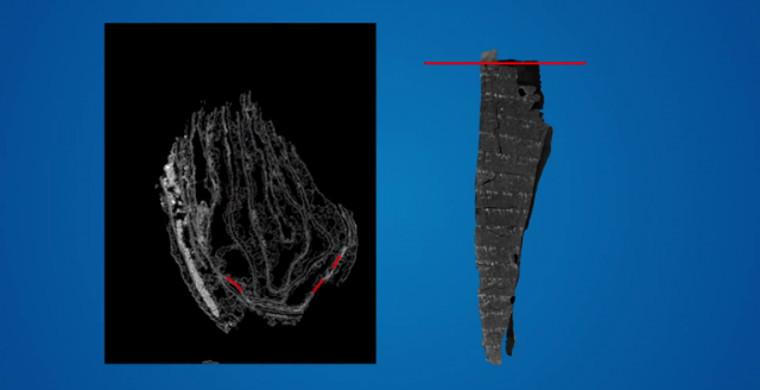Israel: 12th Dead Sea Scroll cave of Qumran discovered
By Martha Henriques
International Business Times
http://www.ibtimes.co.uk/
February 9, 2017
Excavations in the cliffs of Qumran, by the north-west shore of the Dead Sea, have revealed a 12th cave believed to have concealed the Dead Sea Scrolls, an ancient collection of religious texts.
The cave is found near Qumran, in the Palestinian Territories' West Bank. In it archaeologists discovered storage jars that held the scrolls, fragments of cloth wrappings, the string tie for a scroll and a leather strap for binding it. A blank piece of parchment was also found, believed to have been part-way through the process of it being prepared for writing on.
The scrolls include biblical texts and Second Temple Period texts, mainly written in Hebrew and Aramaic. They were discovered near Jerusalem in the 1940s by Bedouin goat herders. The scrolls are believed to have been written between 150BC and 70AD. They have been found scattered in several caves in the Qumran area. Some caves have harboured only jars and wrappings of scrolls, but are thought to have also held scrolls at some point in their history.
Best find in 60 years
Many of the caves were searched and the scrolls found removed and sold. In the newly discovered cave, pickaxes found in the cave dating from the 1950s suggest that the cave was looted around that time and its scrolls removed.
"This exciting excavation is the closest we've come to discovering new Dead Sea Scrolls in 60 years. Until now, it was accepted that Dead Sea Scrolls were found only in 11 caves at Qumran, but now there is no doubt that this is the 12th cave," said Oren Gutfeld of the Hebrew University of Jerusalem, Israel, who directed the excavation.
"Although at the end of the day no scroll was found, and instead we 'only' found a piece of parchment rolled up in a jug that was being processed for writing, the findings indicate beyond any doubt that the cave contained scrolls that were stolen."
"The important discovery of another scroll cave attests to the fact that a lot of work remains to be done in the Judean Desert and finds of huge importance are still waiting to be discovered," said Israel Hasson, director-general of the Israel Antiquities Authority.
"We are in a race against time as antiquities thieves steal heritage assets worldwide for financial gain. The State of Israel needs to mobilize and allocate the necessary resources in order to launch a historic operation, together with the public, to carry out a systematic excavation of all the caves of the Judean Desert."
The cave was also occupied much earlier than the period in which the Dead Sea Scrolls were written. Remains from the Neolithic period, which began about 8500BC, and Chalcolithic period, beginning about 4300BC. Pottery, flint blades, arrowheads and a seal made of the semi-precious stone carnelian were found in the cave dating from these earlier times.
END














